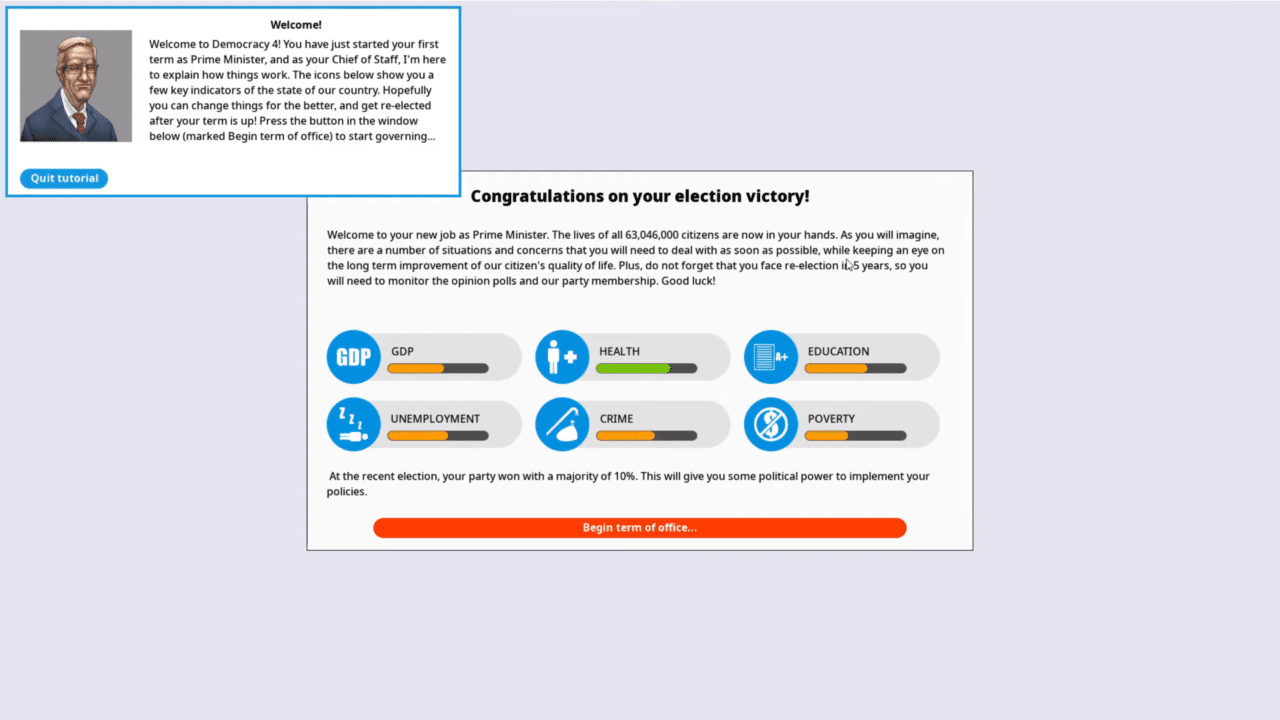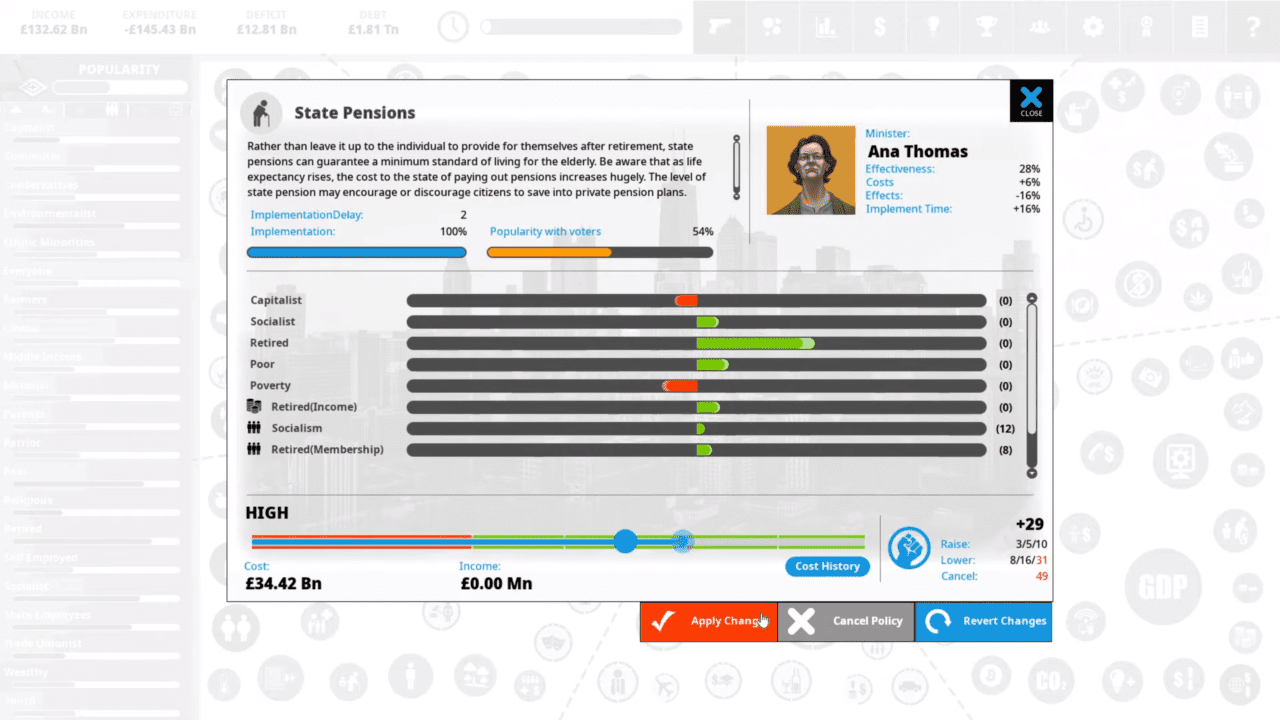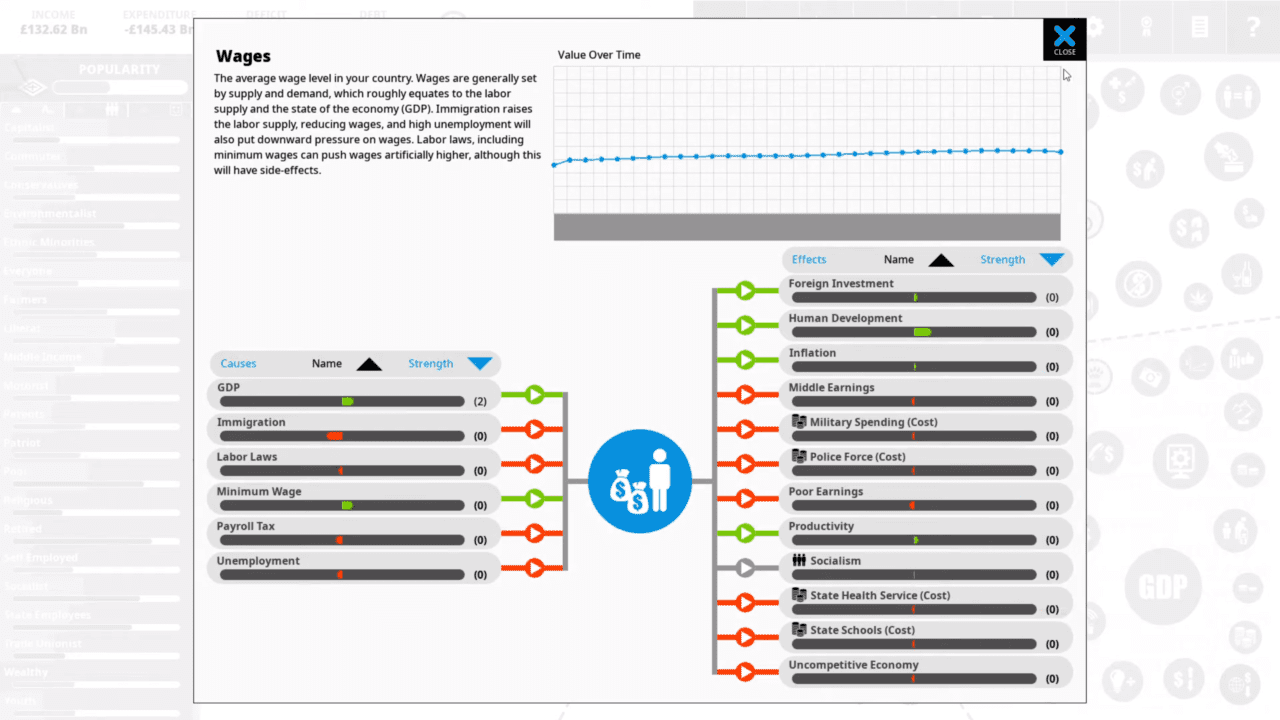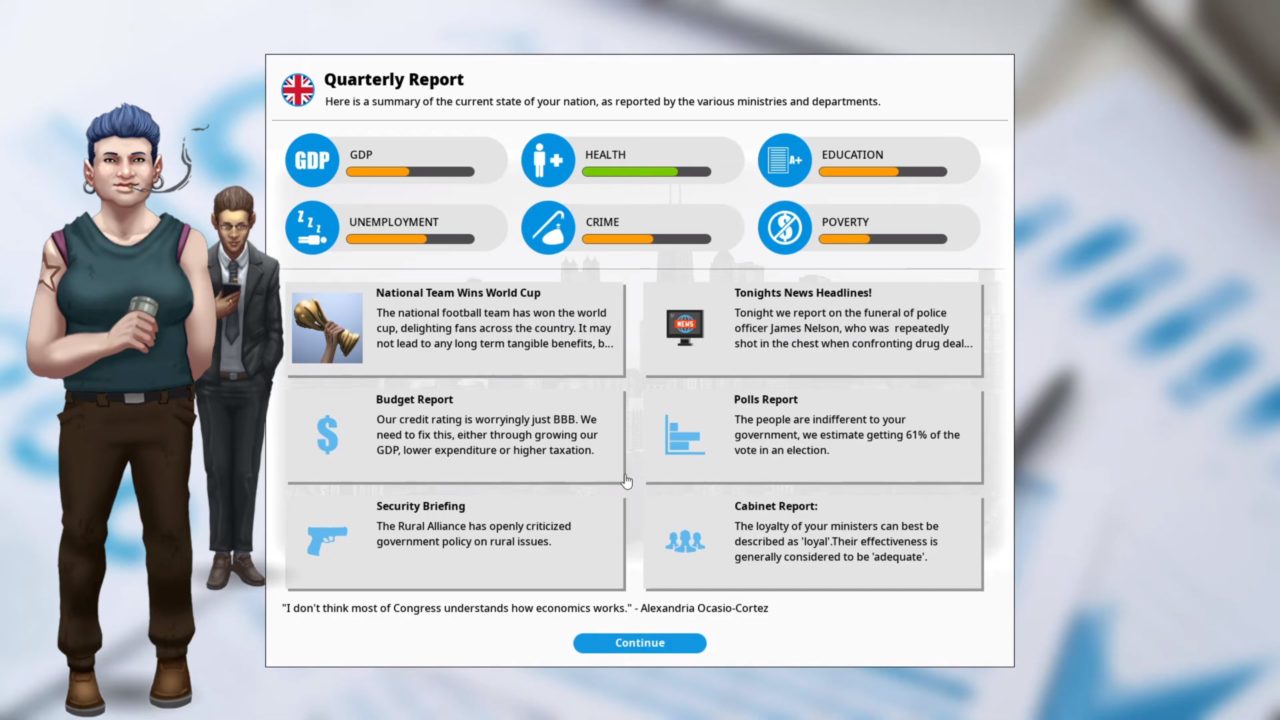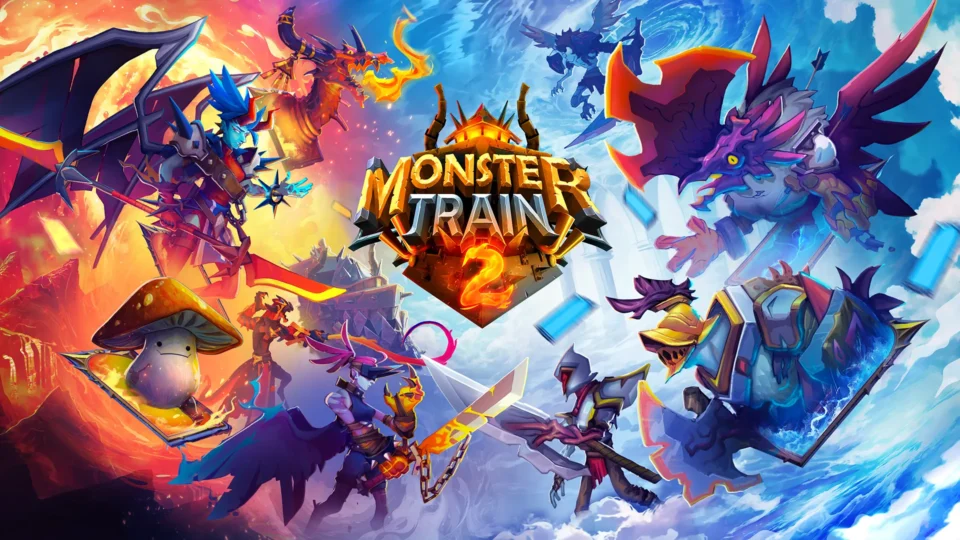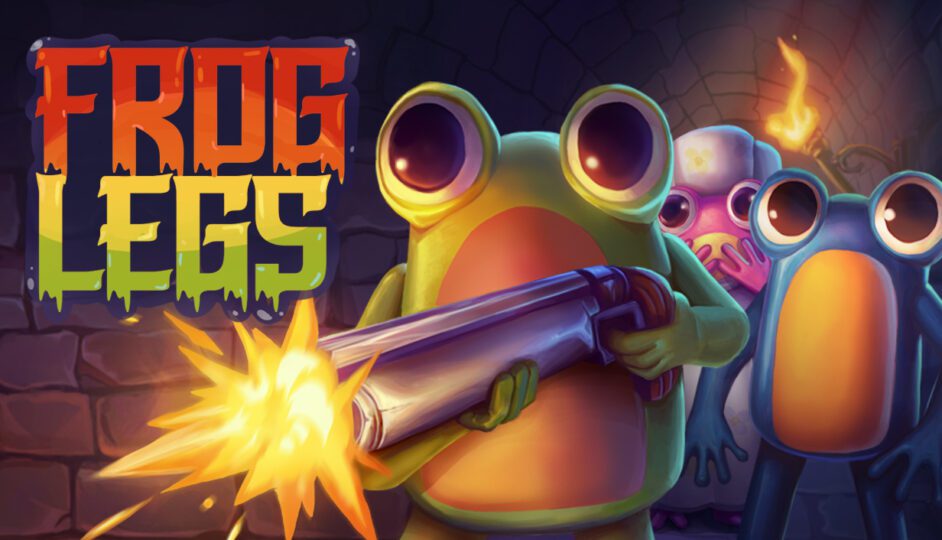Sitting through what feels like the fiftieth political briefing this week, as a student of politics through an international pandemic, it is hard not to let a little frustration creep in. Here they are, again, announcing something that should have been announced months ago, and even then it would have been too late. Everything leading up to this point has felt like a frantic blur of parliamentary elections, Brexit, resignations, negotiations, the US presidential election, then a lockdown, maybe even two. Here we are now, confined to our homes, and wondering what, if anything, can we do? The one thing we have all thought at one point or another, the one guaranteed political position is, “I would have done things differently”.
Now, were this a video game, we would have higher expectations. The sim genre has opened many doors to us – some that probably should have stayed closed. The Sims itself is one of the top-selling games of all time, allowing us to live vicariously as a vampire barista or a secretly evil socialite, but the wider genre has skittered out of control – giving us titles like Game Dev Tycoon, Tourist Bus Simulator, and Surgeon Sim to name a few. I have genuinely seen people break the hundred-hour mark on Steam playing Goat Simulator, and it does make you wonder: why do we play these games?
The sillier of those entries provide a clear path to wackiness from the outset, but there are simulator games that genuinely have the potential to impart knowledge too. Sims that touch on flight, business management, truck driving, farming… they all indirectly inform the player in ways that older and simpler games just could not. Training-level flight simulators are available for commercial purchase these days, implying a great deal of potential for the real-world applications of these games. Combine this realism with the twists and turns of strategy games, and you’ve got one of the most engaging and compelling game genres of all time (or the driest, depending on your outlook, I suppose). For this particular illustration I’ve chosen Democracy 4 as my focus, and will explain why shortly.
Political sims provide a unique balance of power and reward – you can quite literally rule over every element of a country – micromanaging and tweaking the stats until you’ve built up your paradise. Likewise, those of us with a sadistic Sims hangover may try and grind a country into the ground, or experiment with dictatorships and harsh sanctions just to see what would happen. The point is: if you think you can do better, this is how you put that to the (very unreliable) test. Even just for a spot of visceral pleasure.
But would doing things differently change them for the better? Unlike linear games with narratives that swell to a heady crescendo, your RPGs and FPS games, for example, political sims absolutely cannot provide you with “the good ending”. You want to come out on top in the polls, sure, but to win? It should be impossible. In winning the votes of some, you lose those of others. Sometimes in politics there is no right answer. You should be compelled and conflicted. So yes, make sure everyone has what they want – but equally the money and resources have to come from somewhere. Protecting the people can infringe on their liberties, staying out of debt can anger those you tax the hardest – you will never please them all.
It is, undoubtedly, a hard line to follow. Game developers are often reticent to involve their personal or political lives in their games for fear of a dent in sales, and when it comes to political sims there must be a level of impartiality to allow the player to explore various options without limitation. It also, crucially, has to be fun. If you can add a bit of humour into your game (like in Not Tonight, where the politics of the game were very clear, but there was enough humour and warmth that there was no real need for impartiality), you seem to be freed of these shackles, but in a serious policy-driven game there is a need to represent all sides.
But make it too fun and you’ve lost the point of a political game. In playing these games, you want some form of cause and effect, but you have to adhere to ethical and entertainment guidelines whilst still making it realistic. Fantasy games have it easy, no one bats an eye at the rampant caste system that elves seem enslaved to, no one cares that the artificial bourgeois life of pretend work and decadence is going to economically impact the hobbits when the free market falls. In playing a political sim you not only want it to make sense and be tolerant to your views, you want to feel as though there is a realistic challenge.
Democracy 4 is currently in early access, and it makes for a great case study on why this kind of game works, and why it can genuinely be a form of political education, and even encourage participation in real-world politics. The game allows you to choose a country to represent, then a selection of parties and modifiers to make the political climate as close or as far from reality as you would like. Your main aim is to enact, repeal, support, defund, or amend policies – all the while keeping an eye on your cabinet, your safety, and the security and income of your country. It is a lot to keep track of, but I think already here we have a really nice introduction to the reality of politics. Now, I’m not saying any number of people couldn’t do the job better than our current government, or any that went before it, but an introduction to the brutal complexity of the job goes a long way.
You are limited by your political capital each turn, a nifty metaphor for the amount of time and energy (and money) you can spend hyping the whips and bribing the multinationals during your term. Each demographic is represented in focus groups, and to ignore the plight of one group is to ensure rebellion or unrest later on in the game. You want to raise taxes on businesses and high earners? Great, but all those juicy industries are going to leave the country and go elsewhere with their money eventually. But this in itself is not a ‘game over’. You can survive this.
These mechanics show how important it is to stand fast to your commitments, how you have to always be looking to solutions that harm the fewest people, and how you must choose on occasion between democracy and safety. If you upset the capitalists, fine, but you have to be prepared for return fire. The game lets you experiment with new policies and schemes, crafting the political landscape to your personal taste, but it never fails to implement a heavy cause and effect. Much like real-world governments, you will always bear marks of shame and regretful sacrifices have to be made.
Not to say the only impression should be that of doom and gloom. I span through a run where I had almost perfected a secular communist state, when a bunch of motorists assassinated me. I don’t know what that briefing would have read like, but it certainly lightened the mood.
Democracy 4 differs from its predecessor by introducing some timely factors, such as an in-depth ‘electioneering’ interface, the possibility of “fake news”, wild and updated extremism, and an improved UI. Despite being a relatively small and simple-looking game, D4 delivers an excessive amount of raw content. Focusing more on pulling the strings, highlighting the behind-the-scenes tweaking and fiddling that goes on, and outlining the impact that outside factors have on the political system – this game has the potential to really teach us about governmental process.
It also, crucially, provides the potential for unchained anarchic fun – in government of all places. Some of it makes quite literally no sense – at one point the capitalists/poor loved me but the socialists/wealthy hated me. I’m still not sure how I managed that severe a divide, but this is part of the charm. Democracy 3 allowed you to brute-force a victory, implementing ridiculously conflicting policies to keep everyone basically happy – but D4 allows for a more complex and difficult process. It is possible to focus on individual issues and “fix” them, but there is less scope for shallow victories.
Democracy 4 is currently, in my opinion, the best political sim you can find. Early access and a mid-tier price might put you off – but this is an extraordinary game for the sheer volume of data and potential it offers. Currently there are only four countries to play as – but two more are set to be included when the game releases some time in 2021. The focus here really is on governmental process, people, and the human element of politics – despite its initial data-driven and cold exterior, which gives it the edge if you want to test the theory that you could do any of this better.

